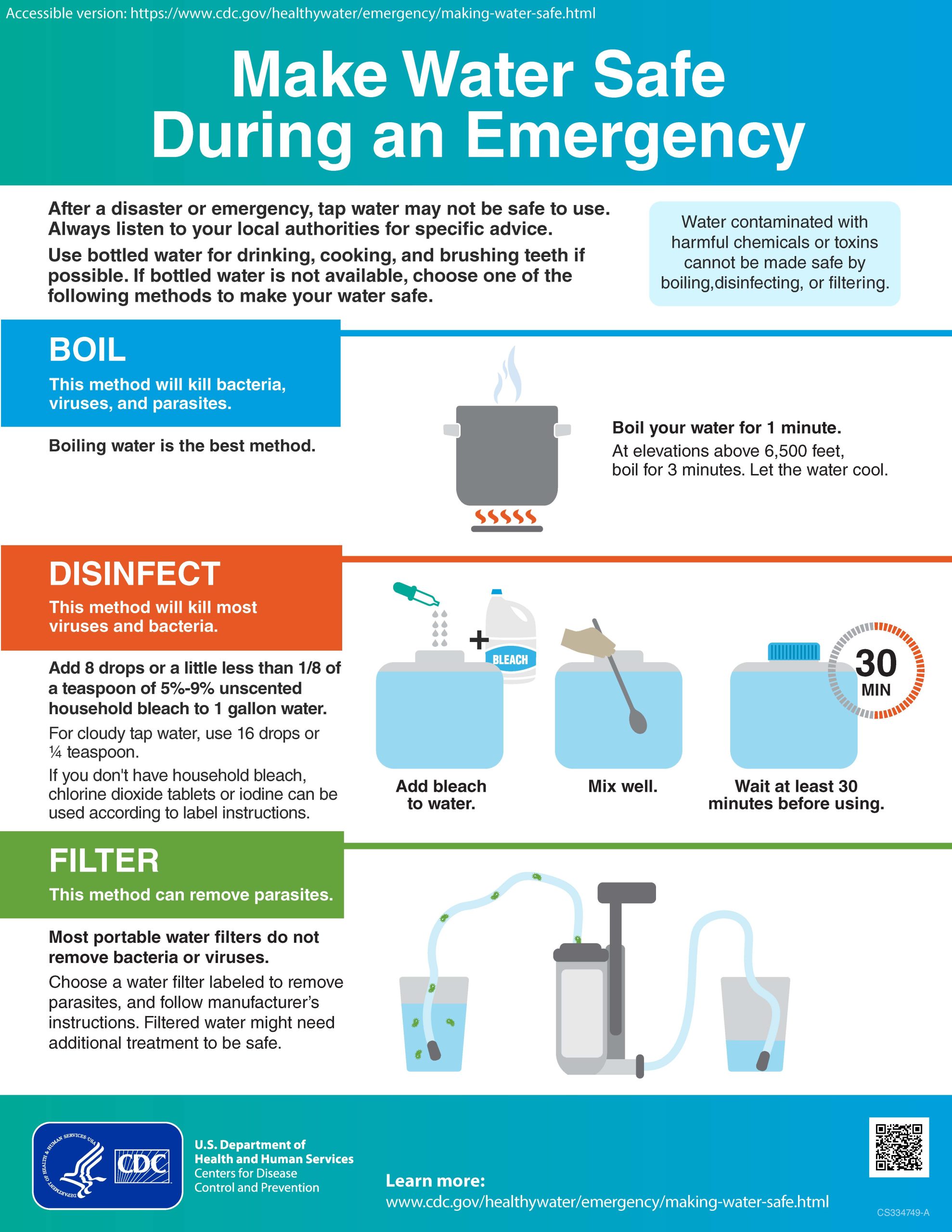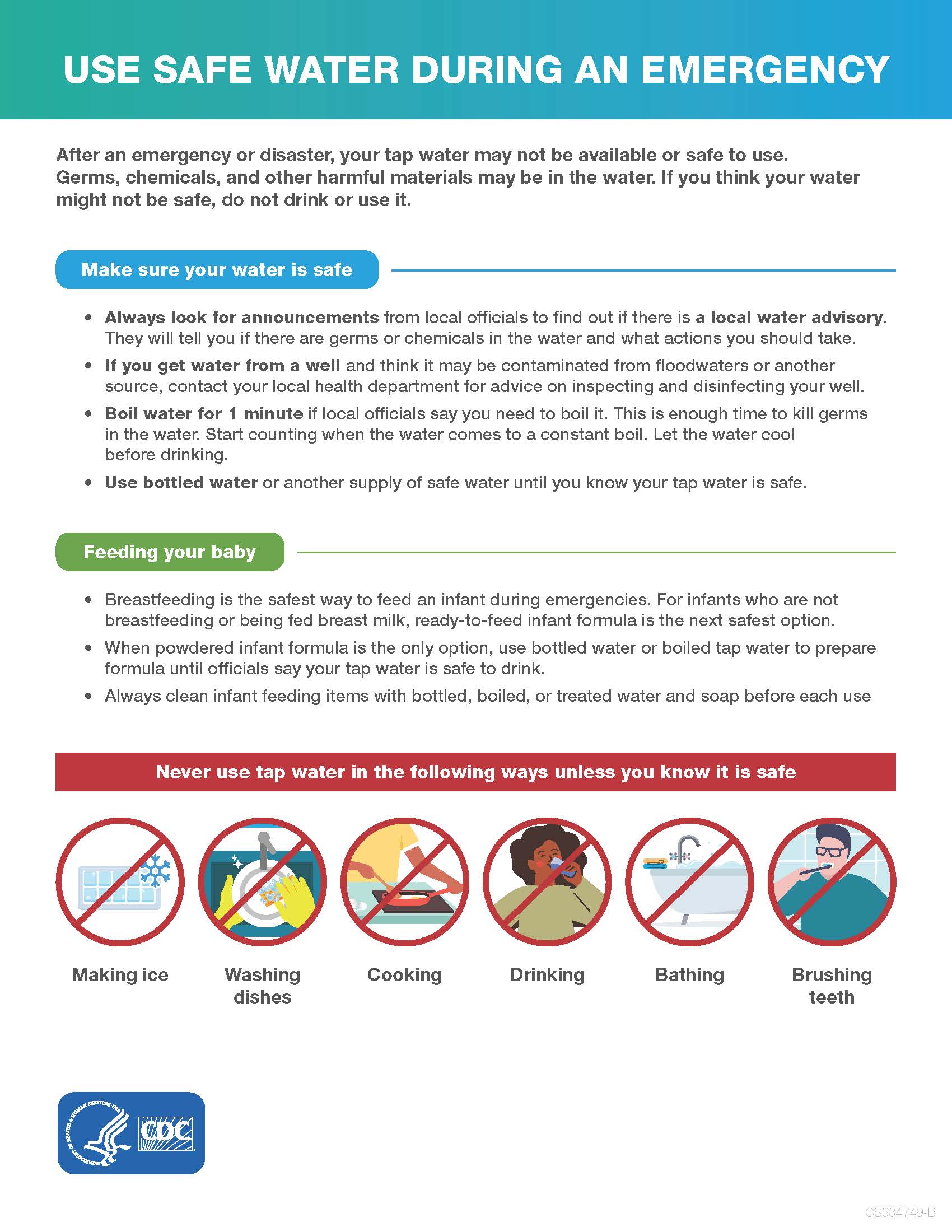Key points
- During a water-related emergency or outbreak, safe drinking water may not be available.
- Prepare for an emergency by creating and storing a 3-day supply of water that will meet your family’s needs.
- Store at least 1 gallon of water per day for each person.
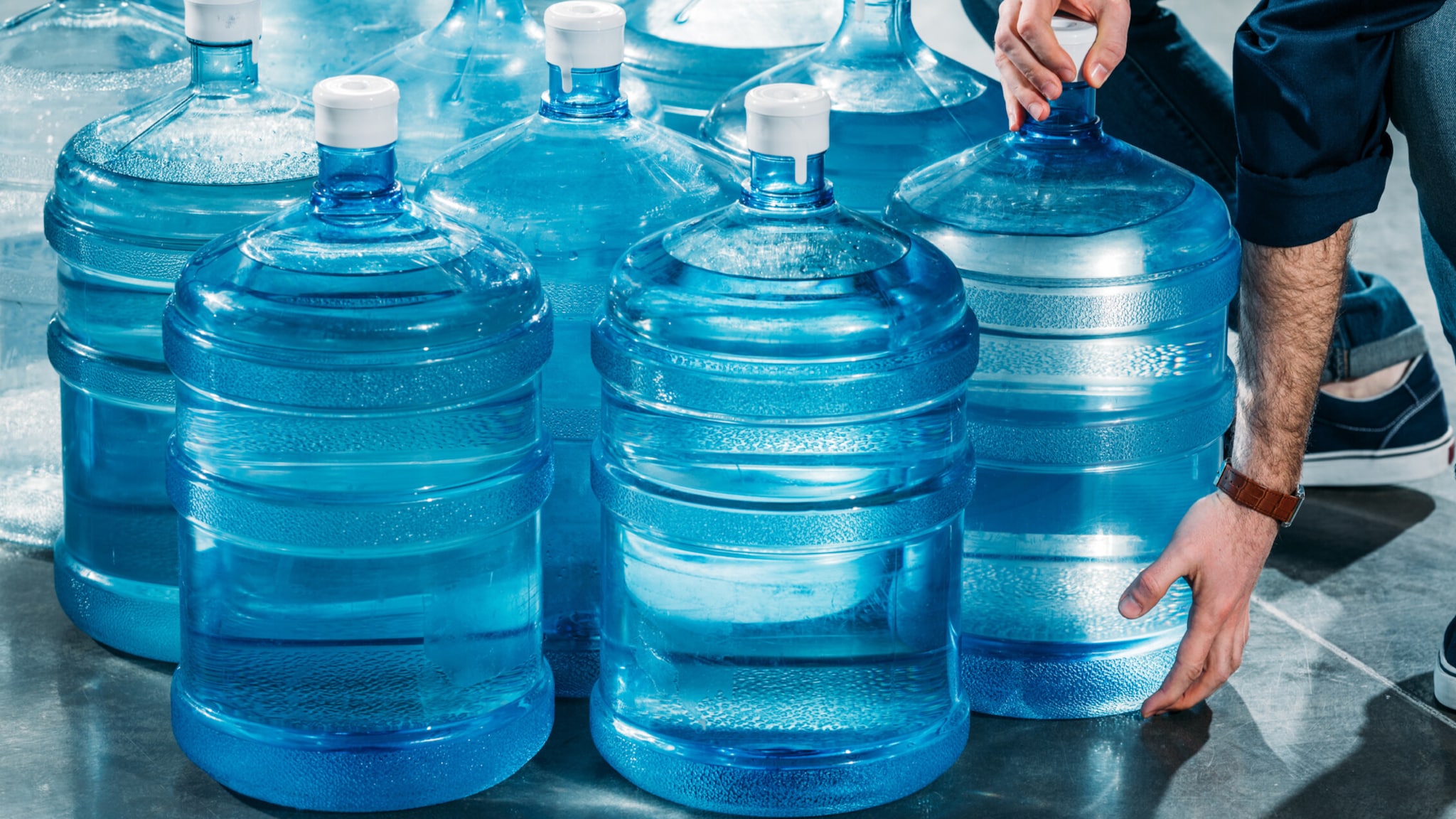
Bottled water
Unopened, commercially bottled water is the safest and most reliable source of water in an emergency.
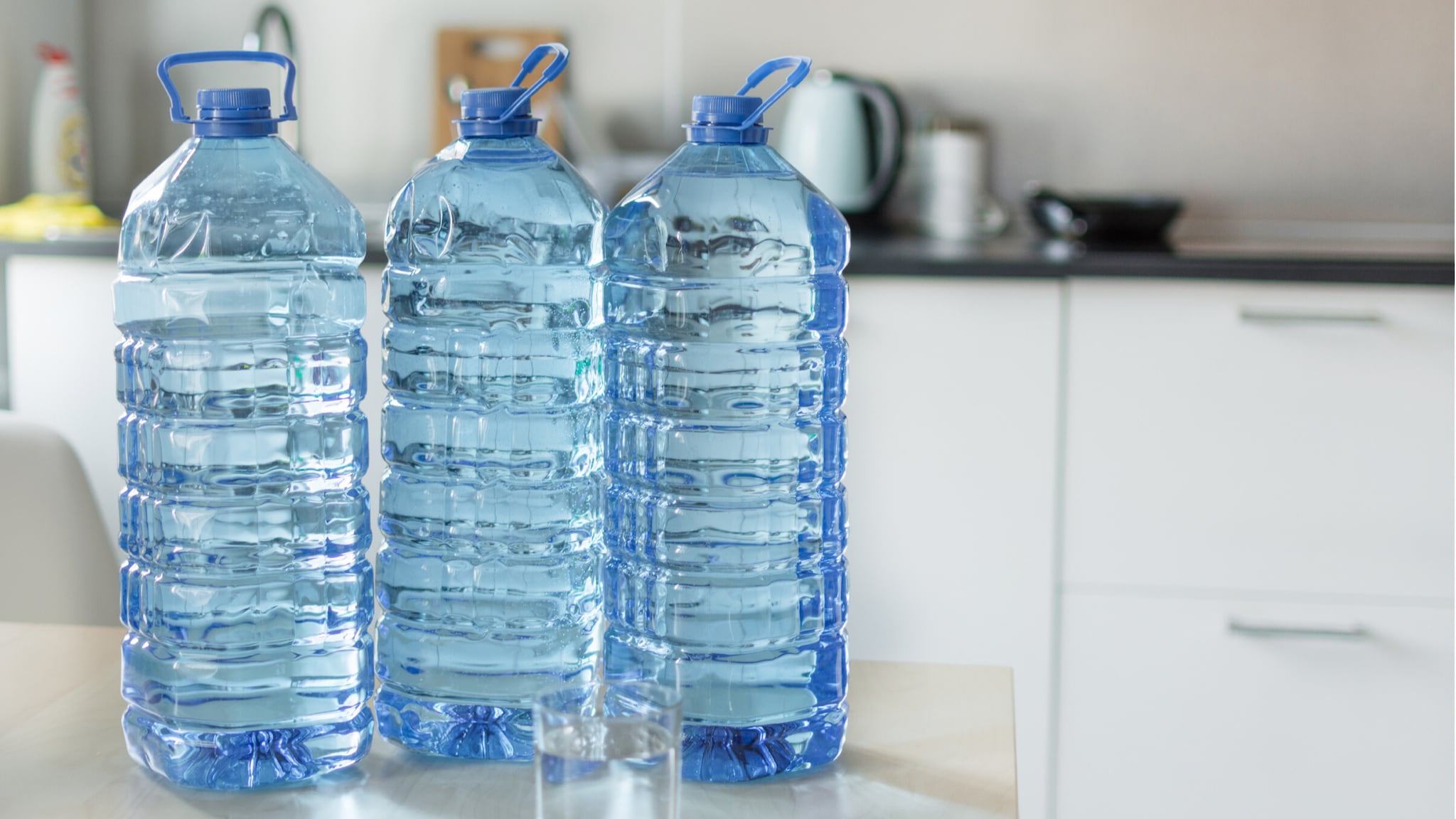
If you do not have bottled water, you can make your water safe to drink by following the instructions on CDC's Making Water Safe in an Emergency page. Use clean containers to collect and store your water.
How much emergency water to store
Store at least 1 gallon of water per person, per day for 3 days. You can use this water during an emergency for drinking, cooking, brushing teeth, and other uses. Try to store a 2-week supply if possible.
Consider storing more water than this for pregnant people, people who are sick, pets, or if you live in a hot climate.
Other considerations
- Observe the expiration date for store-bought water.
- If you are filling containers with water to store, replace the water every 6 months.
- Store a bottle of unscented liquid household chlorine bleach (label should say it contains between 5% and 9% of sodium hypochlorite). You can use bleach to disinfect your water, if necessary, and for general cleaning and sanitizing.
Choosing a container
If you are filling containers with water to store, it is best to use FDA-approved food-grade water storage containers. They can be found at surplus or camping supply stores. Contact the storage container manufacturer if you are not sure whether the container is food-grade.
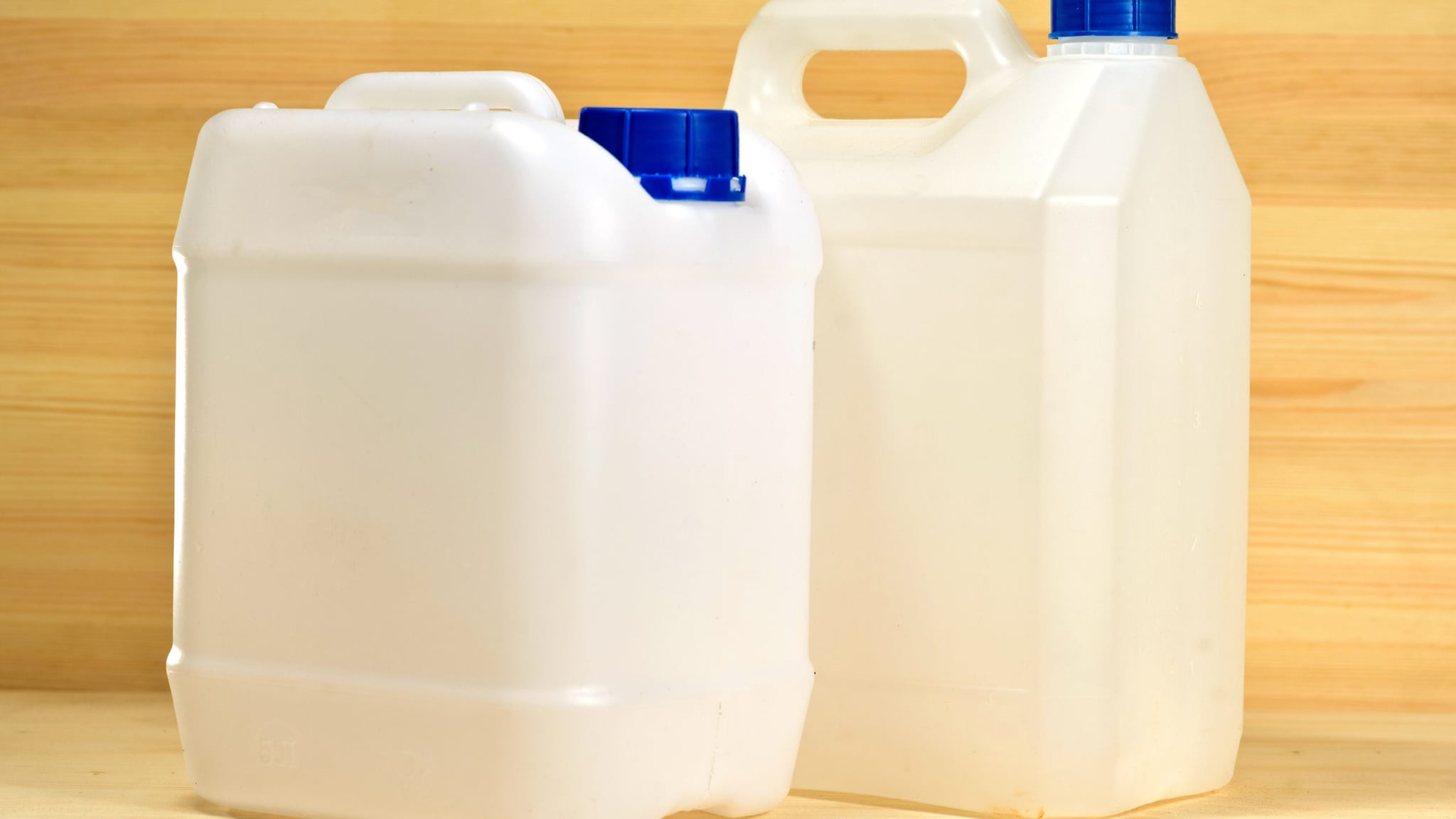
If you are not able to use a food-grade water storage container, be sure the container you choose:
- Has a top that can be closed tightly.
- Is made of durable, unbreakable materials (not glass).
- Has a narrow neck or opening, if possible, so you can pour water out of it.
DO NOT USE containers that were previously used to hold liquid or solid toxic chemicals, such as bleach or pesticides.
Cleaning and sanitizing a water storage container before use
Before filling with water, follow these steps to clean and sanitize water storage containers:
- Wash the storage container with soap and rinse completely with water.
- Sanitize the container with a solution made by mixing 1 teaspoon of unscented liquid household chlorine bleach in 1 quart (4 cups) of water. Use bleach that contains 5%–9% sodium hypochlorite.
- Cover the container tightly and shake it well. Make sure the sanitizing bleach solution touches all inside surfaces of the container.
- Wait at least 30 seconds and then pour the sanitizing solution out of the container.
- Let the empty container air-dry before use.
- Pour clean water into the sanitized container and cover it with a tight lid.
Storing the water
Tips for storing water from your home:
- Label container as "drinking water" and include storage date.
- Replace water every six months.
- Keep containers in a place with a cool temperature (50°F –70°F).
- Keep containers away from direct sunlight.
- Keep containers away from toxic substances, such as gasoline or pesticides.
Using the water
Tips for taking water out of the container:
- If using a scoop or other device, use a clean one each time you remove water from the container to avoid contaminating the water.
- Do not to touch the water or insides of the container with your hands.
- Do not scoop out water with your hands.

